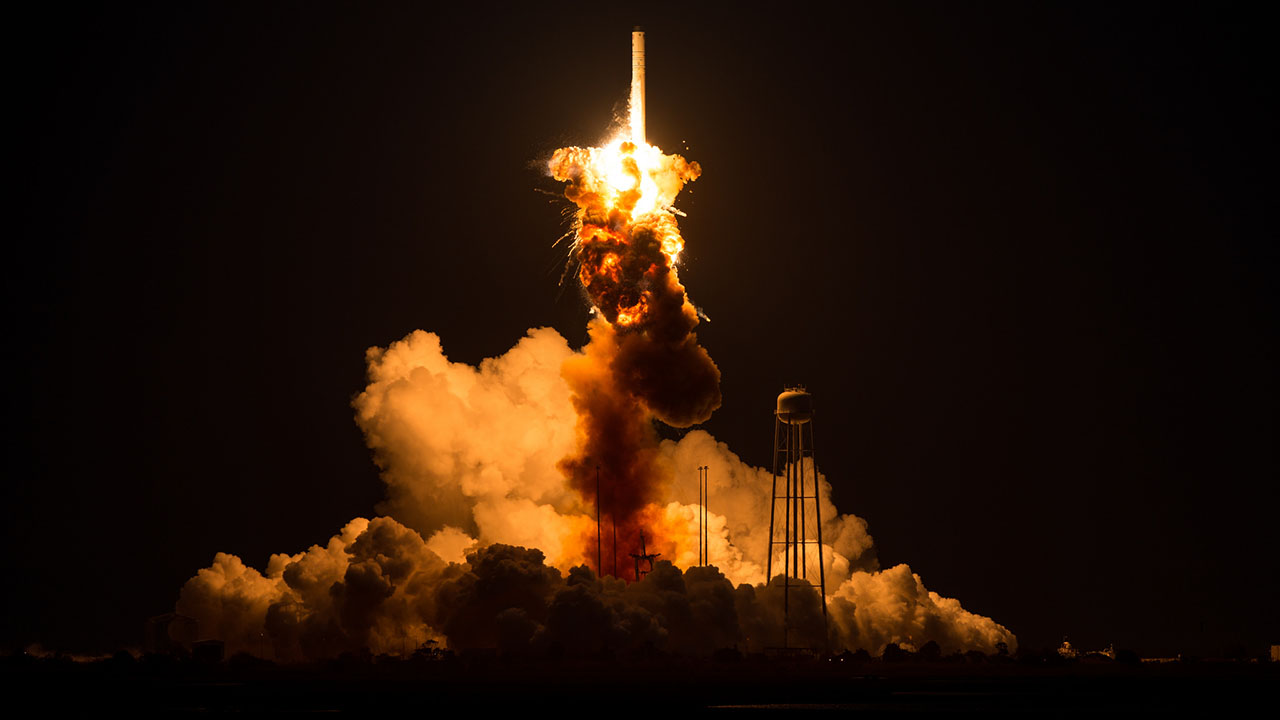On Tuesday night, the crowd that showed up for NASA’s highly anticipated rocket launch in Virginia got an expensive fireworks show instead. Thankfully, no one was injured in the unmanned rocket, which was intended to transport cargo to the International Space Station.
Orbital Science’s Antares Rocket exploded a mere seconds after is launch, deepening criticism both of NASA’s increased reliance on commercial partners to further its space program, and of Orbital Science’s strategy of repurposing old Soviet rockets, according to the Guardian.
The problem “involved failures of the first stage of the Antares rocket” which was powered by “a refurbished Aerojet engine left over from the NK-33 program when the Soviet Union abandoned its moonshot.” While SpaceX founder Elon Musk, who made history for turning SpaceX into the first private firm to send a shuttle into space, has openly mocked Orbital Space’s rockets, Orbital’s executive vice-president Frank Culbertson is not sure that the engine is to blame for the malfunction. “The history of this engine has been well documented. Basically this was an engine that was designed to carry cosmonauts to the moon,” he said. “A number of them were bought by Aerojet to be refurbished and Americanised. It’s an extensively tested engine, very robust and rugged.”
“We don’t know whether the engine was involved in this or not and that’s something we will try to determine as quickly as possible,” he said.
To add insult to injury, officials are warning people to stay away from the far-flung debris, which may contain rocket fuel and other contaminants. “There may be a possibility of debris washing up onto some of the beaches, into some of the areas surrounding the island,” said director Bill Wrobel, the director of NASA’s Wallops Island facility. “If people do find any debris, or anything that might be suspect — something that doesn’t look familiar — we would ask that you stay away from the area and please call our incident response team.”
The Guardian reports that NASA was “disappointed” by the outcome.
(Photo: NASA/Joel Kowsky)


